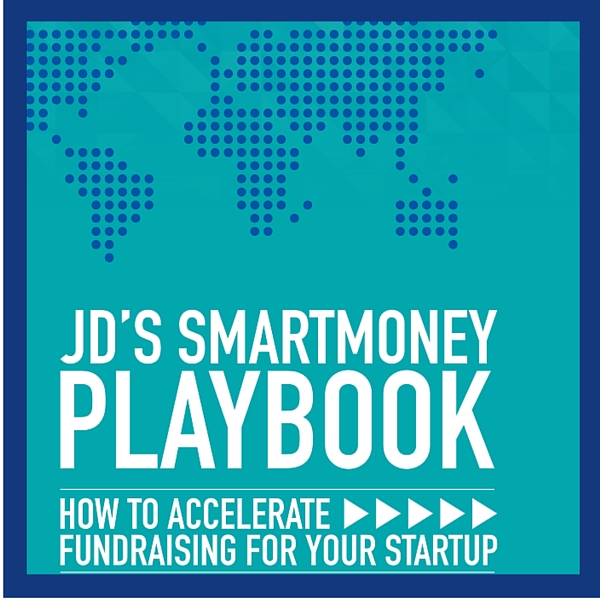When you start the fundraising process for your business you’re not yet focused on an investment term sheet. Rather, you’re laser-focused on booking meetings, generating interest and the ultimate goal of getting the money.
Just as the purpose of a resume and interviews is to get a job offer, the purpose of your pitch deck and all those meetings is to get an investment offer. And an investment offer starts with a term sheet.
But the nature of the relationship changes the moment you receive that term sheet from a venture capitalist or angel investor.
Watch, as Jeremey Glaser of Mintz Levin and I discuss that here:
Before you’re offered a term sheet the power resides firmly on the investor side of the table. After all, you need money for your business, and they have it. You spend months meeting with investors, trying to persuade them to place a bet on you and your company.
And then they do. They say yes, and offer you a term sheet. And at that moment, the power shifts from their side of the table to your side of the table.
What To Expect When You Get a Term Sheet
Back to the job interview analogy. When you get the term sheet the investor has agreed to hire you, so to speak. To place an investment in you, your idea and your team. Now you have the upper hand, right?
Not necessarily, particularly if this is your first time raising money.
If this is your first time raising money from investors, you’ll no doubt be thrilled to have reached this stage. Getting a term sheet validates your idea from someone whose job is to select the best investment opportunities.
If you’re a relatively new entrepreneur, this is your first time negotiating a term sheet and a Series-A round of financing.
The investor on the other side of the table has years of experience doing this. He or she knows all the terms, has a deep team of partners and lawyers and negotiates term sheets all the time.
Even if you’ve raised money before, you likely don’t negotiate term sheets more often than every three or four years. A venture capitalist may negotiate three or four every month.
You want to raise money, and time is of the essence.
 I describe how to find the right investors in the SmartMoney Playbook. It’s free, and you can grab it here.
I describe how to find the right investors in the SmartMoney Playbook. It’s free, and you can grab it here.
The investors have indicated that they want to fund you, but they have more time to wait than you do. So they can drag the process out, and often do. And the longer they do, the more the power can swing back in their favor.
The investors also have a better sense than you of what the game may look like down the road. They’ll want to structure the first round with an eye towards later rounds of financing, the option to replace you as CEO, positioning themselves favorably for exit events and more. So their team will structure a term sheet with those events in mind.
What To Expect In a Term Sheet
Other than, perhaps, a non-disclosure agreement, a term sheet is likely to be the first legal agreement you sign in the fundraising process. It’s a reasonably short and non-binding agreement between the investor and the entrepreneur. The term sheet captures the essence of what the two parties are agreeing to, such as:
- investment amount,
- valuation,
- preferred vs common stock,
- option pool,
- board structure,
- due diligence process,
- anti-dilution, drag along, right of first refusal and other “rights”,
- restrictive covenants,
- liquidation preferences,
- estimated closing date, and more.
The thing you need to remember is this: you don’t have to accept the terms they propose.
You may have a good company…a great company, even. But good companies get bad deals all the time. That’s why it’s critical to raise money from the right investors for YOUR business. I refer to these as “SmartMoney” investors.
SmartMoney investors are those who have intimate knowledge of your industry. They know your competitors, what your customers want and understand the potential of your idea. They’ve invested before and achieved successful outcomes. As a result, they’re less demanding on many of the terms because they’ve already assessed the risk potential and experienced the upside.
It can feel exhilarating to receive a term sheet, but don’t accept it unless it’s right for you. That doesn’t just mean the “terms.” It also means the “players” so it’s critical that you screen investors and not take a shotgun approach to raising money.
You’re on a mission to build a great company and to achieve great success. That means you need to assemble a great team, which includes your investors as well as management.
[reminder]Have you received a term sheet before? What was your experience like?[/reminder]Join Us in a 30-Day Sprint for SmartMoney.
Our sprint program kicks off October 3, 2017 and is reserved for those who are poised and ready to take action to accelerate their path to funding. Sign up here to get on our wait list.








Pingback: Are You Making These Common Sweat Equity Mistakes - JD Davids()